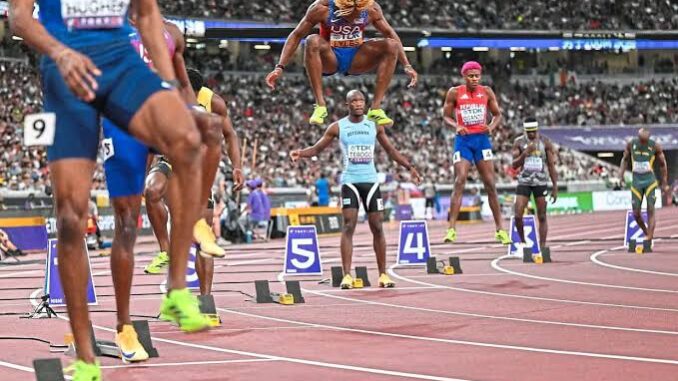
In track and field, numbers rarely lie. They tell stories of records, of races won and lost, of athletes who separate themselves from the rest through times that are etched into history. For Noah Lyles, however, the phrase takes on a deeper meaning. “Numbers don’t Lyle” has become the unshakable truth of his career—a reminder that the American sprint star has built his dominance not on empty hype, but on results that speak louder than words.
Lyles has long been known for his swagger, charisma, and ability to command attention both on and off the track. Critics once accused him of being more of a showman than a champion, but season after season, he has erased doubts with his performances. His times, medals, and records have stacked up in a way that silences debate. At this point, it is no exaggeration to say that his numbers place him among the all-time greats of sprinting.
Consider his journey in the 200 meters, the event that has always been his crown jewel. For years, Usain Bolt’s dominance cast a shadow so large that many believed it would be a generation before anyone else touched his territory. Yet Lyles has proven to be the one sprinter bold enough and fast enough to step into that space. Matching Bolt’s once “untouchable” record was more than just a time on the clock—it was a declaration that Lyles belongs in the same conversation as the legends. The numbers confirm it.
Even beyond the 200m, Lyles has made his mark. In the 100 meters, he has transformed from a doubter’s target to a double world champion. Running sub-9.8 consistently is no small feat, and only a handful of men in history can claim to have achieved it. What makes his numbers even more impressive is the context: Lyles has not only won, but he has done so on the sport’s biggest stages—the World Championships and the Olympics—when pressure is at its peak.
Off the track, Lyles speaks about mental health, confidence, and overcoming setbacks, making him a human face behind the statistics. Yet, every time he takes the starting blocks, the numbers remind us why his words carry weight. His medals—multiple golds across both sprint distances—and his championship records tell the truth that no critic can spin.
The saying “Numbers don’t lie” is common in sports, but in Lyles’ case, it is more personal. The pun writes itself: numbers don’t Lyle. They reflect his evolution from a brash young sprinter into the leader of American sprinting, a man who has proven that personality and performance can coexist. His confidence is no longer mistaken for arrogance, because the clock backs it up.
As he continues his career, the question is no longer whether Lyles will be remembered among the greats—it is how high he will climb on that list. Can he go faster still? Can he break the barriers that even Bolt set? The numbers to come will answer those questions. Until then, one truth remains unshaken: in the world of sprinting, numbers don’t Lyle
Be the first to comment